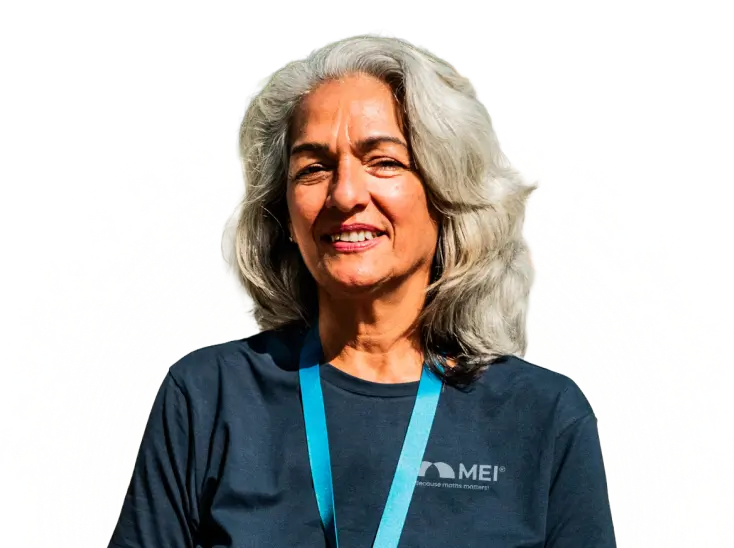-
Advanced Mathematics Support Programme (AMSP)
The AMSP is managed by MEI and funded by the DfE. The programme provides extensive support for students and teachers of A level Mathematics, Further Mathematics, and Core Maths, aiming to increase participation and widen access to advanced mathematics.
Find out more -
National Centre for Excellence in the Teaching of Mathematics (NCETM)
MEI is a key delivery partner with the NCETM. This programme promotes high-quality teaching of mathematics from Early Years through to post-16, primarily through its support of the Maths Hubs.
Find out more -
Maths Progression Programme
The Maths Progression Programme aims to remove barriers to maths achievement at the highest grades at GCSE and A level for high-potential students from disadvantaged backgrounds. The programme supports students to progress to study maths or maths-related disciplines beyond GCSE and level 3 maths.
Find out more -
Further Education (FE) Maths CPD Programme
Led by MEI and funded by the Department for Education, the Further Education Maths CPD Programme provides high-quality, sector-specific professional development for those teaching or leading GCSE resit, Functional Skills, and other Level 2 or below maths qualifications in England.
Find out more
Please get in touch if you’d like to find our more about our work, or if you have ideas for new ways to advance maths education.
What we do
Programmes
MEI leads and supports a range of national programmes designed to empower teachers, inspire students, and raise attainment in mathematics across all phases of education in England.
Enrichment and Competitions
MEI promotes mathematical curiosity and creativity through enrichment activities and competitions that engage and challenge students beyond the standard curriculum.
Support for University Maths Progression
MEI supports students on the path to university mathematics by developing their readiness and confidence through targeted resources, guidance, and collaboration with the higher education sector.
Professional Support and Training
MEI supports teachers from Primary through to post-16 with programmes designed to ensure every student can access, enjoy, and succeed in high-quality mathematics education.
Attend the MEI Conference 2026
2-3 July 2026, Keele University
Since 1990, the MEI Conference has been at the forefront of our efforts to support maths education. It reflects our philosophy that emphasising understanding and highlighting the connections within maths is the key to developing fluency, confidence and enjoyment in maths.

